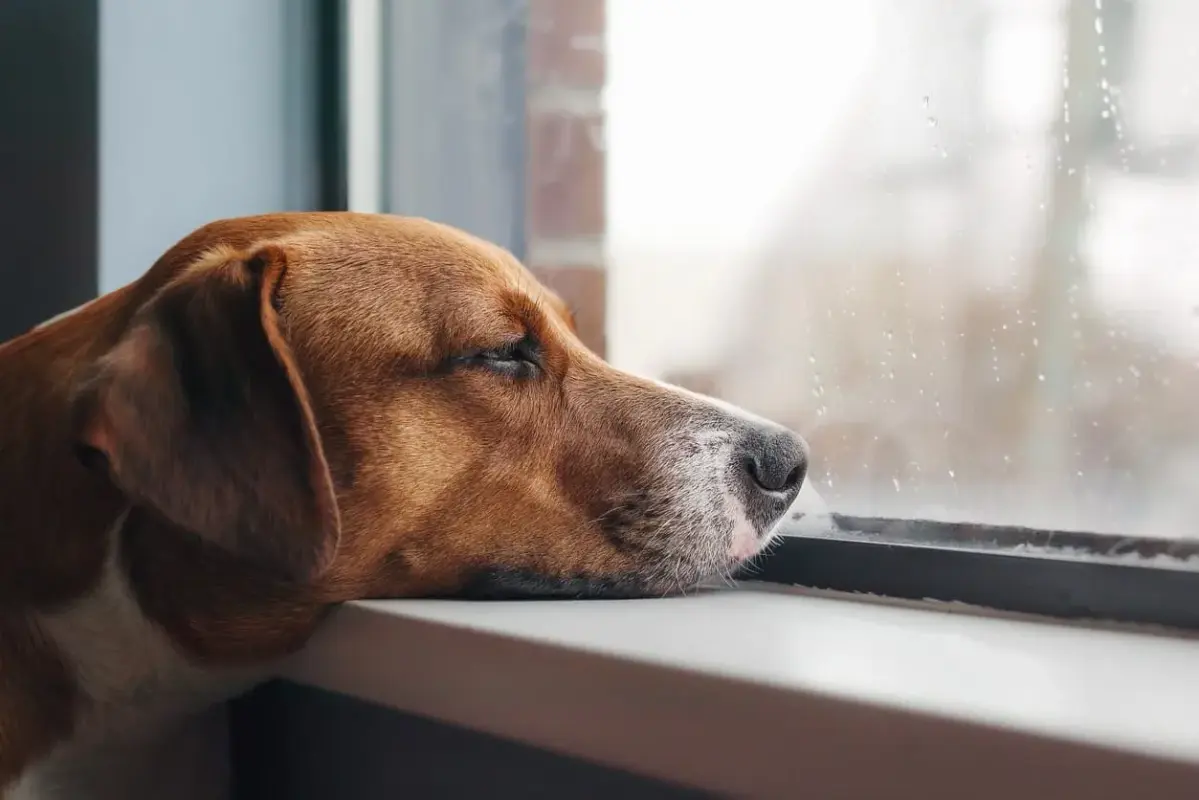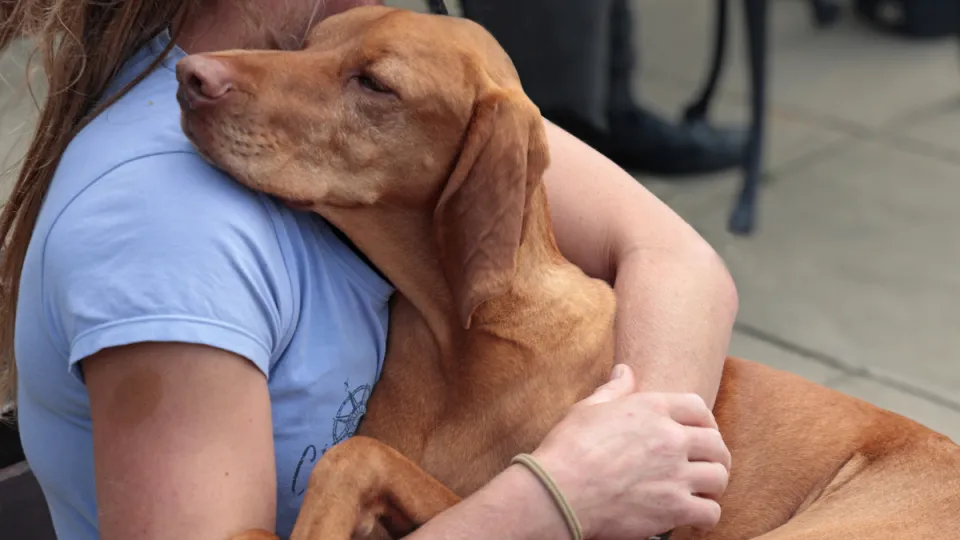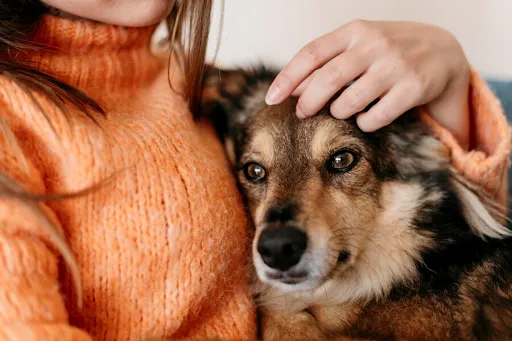Dogs are known as steadfast companions, and for numerous, the bond they share with their human is profound and passionate. But have you ever pondered what your canine truly does when you're not at domestic? Whether you’re gone for a few minutes or a few hours, pooches involvement this division in diverse ways. Understanding their behavior when cleared out alone is crucial—not as it were for their well-being but too for building a upbeat, solid relationship with your pet.
In this blog, we’ll investigate how mutts act when cleared out alone at domestic, what behaviors are ordinary, which ones are signs of stretch or boredom, and how to oversee or progress their solo time.
Read Also: Low-Impact Workouts for Senior Dogs at Home: Keep Your Aging Pup Happy and Healthy
Why Dogs Respond to Being Alone?

Before plunging into particular behaviors, it’s critical to get it why pooches carry on in an unexpected way when alone. Not at all like cats, pooches are pack creatures. They flourish in social settings and are utilized to being around their people or other creatures. When cleared out alone, a few mutts experience:
- Boredom
- Separation anxiety
- Lack of stimulation
- Uncertainty or fear
Their response depends on age, breed, past injury, vitality levels, and training.
Common Pooch Behaviors When Cleared out Alone
Here are the most common ways pooches act when they’re domestic alone—and what they might be attempting to tell you.
1. Resting and Unwinding (The Calm Dog)
Some pooches are totally substance resting until you return. If your puppy is more seasoned, well-adjusted, or low-energy (like a bulldog or basset dog), they might rest most of the day.
Signs:
You return to discover them in the same place
Little to no pulverization or mess
Relaxed body language
This is typical and solid behavior.
2. Chewing and Crushing Things (Boredom or Anxiety)
Chewed shoes, destroyed pads, or devastated furniture are a classic sign your puppy is bored, on edge, or not rationally stimulated.
Causes:
Teething (in puppies)
Lack of chew toys
High vitality or working breeds (e.g., huskies, border collies)
What to do:
Provide perplex toys or chew toys
Leave a cover or thing with your scent
Get a pooch walker or consider doggy daycare
3. Woofing, Yelling, or Crying (Division Anxiety)
If your canine barks, cries, or whimpers for hours, they might be encountering division anxiety.
Other side effects may include:
Pacing
Trying to elude (scratching entryways or windows)
Drooling excessively
This is more common in:
Rescued mutts with past trauma
Velcro breeds (those that adhere closely to owners)
Dogs who aren't utilized to being alone
What to do:
Practice brief unlucky deficiencies (slow desensitization)
Use calming music or white noise
Try uneasiness wraps or counsel a vet for behavioral therapy
4. Taking after You Some time recently You Take off (Clinginess)

Dogs who always take after you some time recently you take off may be planning for your flight. They can frequently sense the schedule: snatching keys, wearing shoes, pressing a bag.
Signs:
Excessive tailing
Nervous behavior as you get ready
Trying to piece your exit
This can turn into push once you're gone.
5. Overlooking You When You Return (Quiet Treatment)
Some mutts act reserved when you return—not since they don’t adore you, but since they’re disturbed or stressed.
Why it happens:
They’re still recuperating sincerely from your absence
They were overexcited and presently feel drained
It’s their way of communicating frustration
Tip: Remain calm and loving. Let them come to you when they’re ready.
6. Having “Accidents” Interior (Stretch or Need of Routine)
Even house-trained mutts may diminish themselves inside if they’re on edge, frightened, or cleared out alone as well long.
Possible causes:
They couldn’t hold it (little bladder)
Medical issues
Stress-induced accidents
What to do:
Stick to a standard potty schedule
Limit alone time (get offer assistance if needed)
Rule out therapeutic issues with a vet
You May Also Like: 10 Big Fluffy Dog Breeds That Are Giant Balls of Love
7. Licking or Chewing Themselves (Uneasiness Grooming)
Dogs may unreasonably lick their paws or chew their skin due to uneasiness, boredom, or stretch when alone.
Signs:
Bald patches
Red or chafed skin
Constant preparing when you return
Treatment:
Provide improvement toys
Use diversion apparatuses (TV, chew toys)
Address uneasiness triggers
How to Know What Your Canine Does Whereas Alone?
1. Utilize a Pet Camera
Many pet proprietors utilize gadgets like:
Furbo
Petcube
Ring indoor cameras
These permit live seeing, treat hurling, and two-way audio.
2. See for Clues
Moved furniture
Scratches on doors
Chewed items
Fur heaps or dribble spots
These can deliver you clues almost your dog’s activity.
Tips to Offer assistance Mutts Adapt with Being Alone

Here’s how to make solo time simpler on your dog:
1. Work out Some time recently You Leave
A tired puppy is a calm pooch. Take them on a walk or play bring to burn energy.
2. Make a Secure Space
Designate a cozy spot like a case or bed with toys and consolation items.
3. Utilize Astound Toys
Toys that apportion treats or challenge their intellect (like Kong, snuffle mats, or astound feeders) can keep them engaged.
4. Take off On Foundation Noise
TV, classical music, or white clamor can give consolation and diminish loneliness.
5. Adhere to a Routine
Dogs flourish on structure. Bolstering, strolling, and takeoff times ought to stay consistent.
6. Attempt Calming Products
Pheromone diffusers (like Adaptil)
CBD treats (vet-approved only)
Anxiety wraps
7. Dodge Sensational Exits
Don’t make a enormous bargain when clearing out. Keep it casual to maintain a strategic distance from activating anxiety.
Long-Term Arrangements for Partition Anxiety
If your puppy appears signs of serious uneasiness, consider:
Professional Pooch Coach: Centered sessions on carton preparing or behavior desensitization
Veterinary Back: A few pooches may advantage from anti-anxiety medication
Doggy Childcare or Pet Sitter: Extraordinary for high-energy mutts or long absences
Last Thoughts
Dogs have sentiments fair like we do—and being cleared out alone can be befuddling, boring, or indeed frightening for them. By learning how mutts act when domestic alone, you can superior react to their passionate needs and offer assistance them feel secure.
Whether your pup naps all day or endures from full-blown division uneasiness, the key is to be persistent, attentive, and proactive. With a few alterations and bounty of cherish, you can guarantee your pooch feels secure and upbeat, indeed when you're separated.